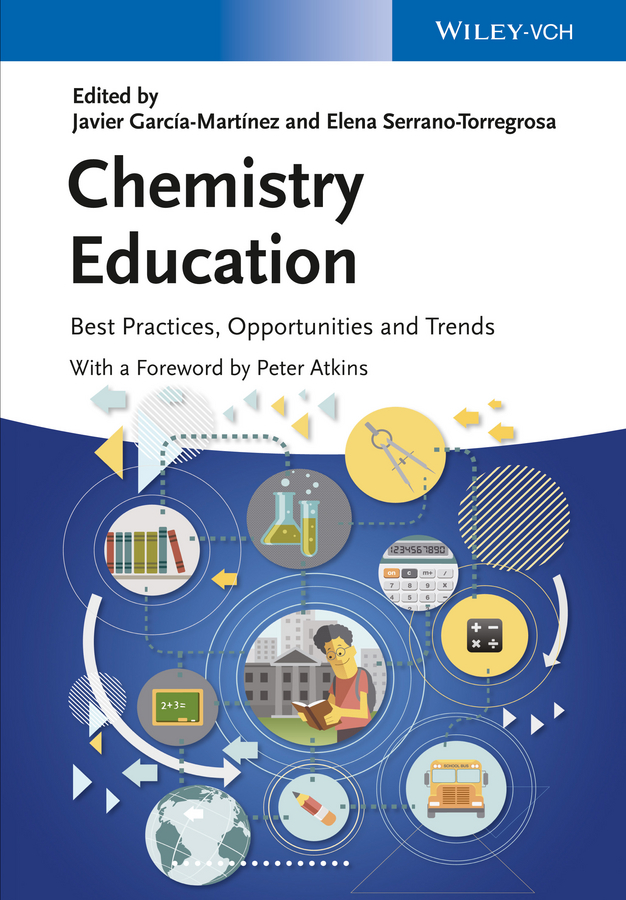
Chemistry Education: Best Practices, Opportunities and Trends
García–Martínez, Javier
Serrano–Torregrosa, Elena
This comprehensive collection of top–level contributions provides a thorough review of the vibrant field of chemistry education. Highly–experienced chemistry professors and chemistry education experts at universities all over the world cover the latest developments in chemistry learning and teaching, as well as the pivotal role of chemistry for shaping the future world. Adopting a practice–oriented approach, they offer a critical view of the current challenges and opportunities of chemistry education, highlighting the pitfalls that can occur, sometimes unconsciously, in teaching chemistry and how to circumvent them. The main topics discussed include the role of technology, best practices, science visualization, and project–based education. Hands–on tips on how to optimally implement novel methods of teaching chemistry at university and high–school level make this is a useful resource for professors with no formal training in didactics as well as for secondary school teachers. INDICE: PART I. CHEMISTRY EDUCATION IN CONTEXT Chemistry Education and Human Activity Universal Chemistry Education: Is It Possible? New Trends in Chemistry Education PART II. CHEMISTRY LEARNING: BEST PRACTICES Discipline–Centered Teaching and Learning in Chemistry Education Learners? Ideas and Misconceptions in Chemistry Visualization for More Efficient Chemistry Education Context–Based Teaching and Learning on School and University Level Leibniz Effectiveness of a Classroom Chemistry Demonstration using the Cognitive Conflict Strategy Inquiry–Based Student–Centered Instruction Supporting Learners: Teacher Tutors and Student Tutors University of Freiburg Teaching Chemistry through the Classics: The History and Language of Chemistry for Chemistry Education Chemists? Guide to Effective Teaching A New Perspective on the Structure of Chemistry as a Basis for the Undergraduate Curriculum Exploring Conceptual Learning, Integration and Progression in Science Education Development of Chemistry Teachers? Knowledge Base Innovative Community Learning Projects: Chemistry in the Community Science Teachers? Learning in the Context of Educational Innovation Research Based Design of Instructional Materials and Teaching Strategies Inexpensive and Effective Teaching Tools: ChemiPhilatelia PART III. CHEMISTRY EDUCATION THROUGH EXPERIMENTATION AND PROJECT–BASED LEARNING The Laboratory in Chemistry Learning and Teaching Chemistry Learning through Experimental Work Education Making Practical Work an Effective Learning Experience through Pre– and Post–Laboratory Work Chemistry Education through Microscale Experiments PART IV. THE ROLE OF THE NEW TECHNOLOGIES 2.0 Tools for Chemistry Teaching and Learning Wiki–Based Lab Reports: Authentic Assessment for Learning Connecting the Lecture to the Laboratory Through Online Activities Encouraging Independent Chemistry Learning through Multimedia Design Context– and Problem–based Learning in Higher Education: E–Learning and Blended Learning
- ISBN: 978-3-527-33605-0
- Editorial: Wiley VCH
- Encuadernacion: Cartoné
- Páginas: 792
- Fecha Publicación: 21/01/2015
- Nº Volúmenes: 1
- Idioma: Inglés
- Inicio /
- /
